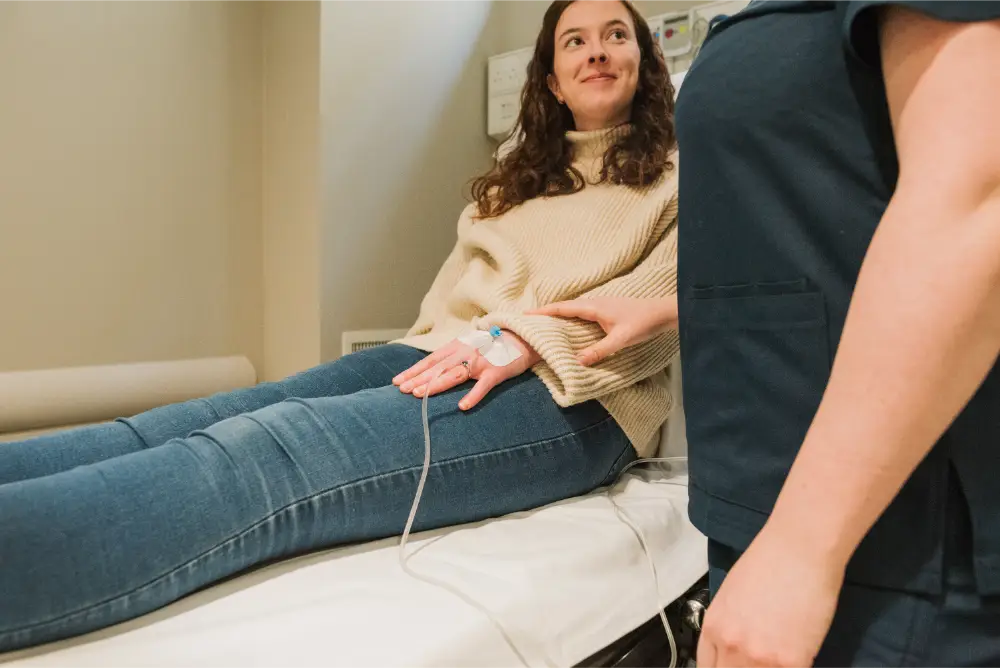Fibromyalgia (Chronic Widespread Pain Syndrome) is a chronic condition defined by widespread musculoskeletal pain, fatigue, and sleep disturbances, often accompanied by cognitive difficulties termed “fibro fog.”
The exact cause is not fully understood, but many experts believe it involves an amplified pain response in the central nervous system. Symptoms can develop after physical trauma, infection, or periods of intense stress, although some individuals experience a gradual onset. Fibromyalgia is more prevalent in women but can affect anyone. Learning to recognise symptoms is crucial for effective management and improved well-being.

At Wessex Pain Clinic, our doctor-led team uses a careful approach to diagnose fibromyalgia. We begin with an in-depth review of your medical history and symptoms, focusing on the nature and distribution of your pain, fatigue, and any sleep or mood issues.
Diagnosis is possible without a physical exam, but if appropriate, and with your consent may help to identify specific tender points, although diagnostic criteria now emphasise broader, persistent pain.
We also work to exclude other conditions with overlapping symptoms (e.g., rheumatoid arthritis, lupus, or thyroid disorders) through blood tests or imaging studies. Once fibromyalgia is confirmed, we establish a personalised plan.

Over-the-counter pain relievers (like paracetamol or NSAIDs) may offer mild relief. Antidepressants and certain anticonvulsants are often prescribed to help normalise pain processing and improve sleep.
Our friendly team is on hand to support you every step of the way. Please get in touch at any time.